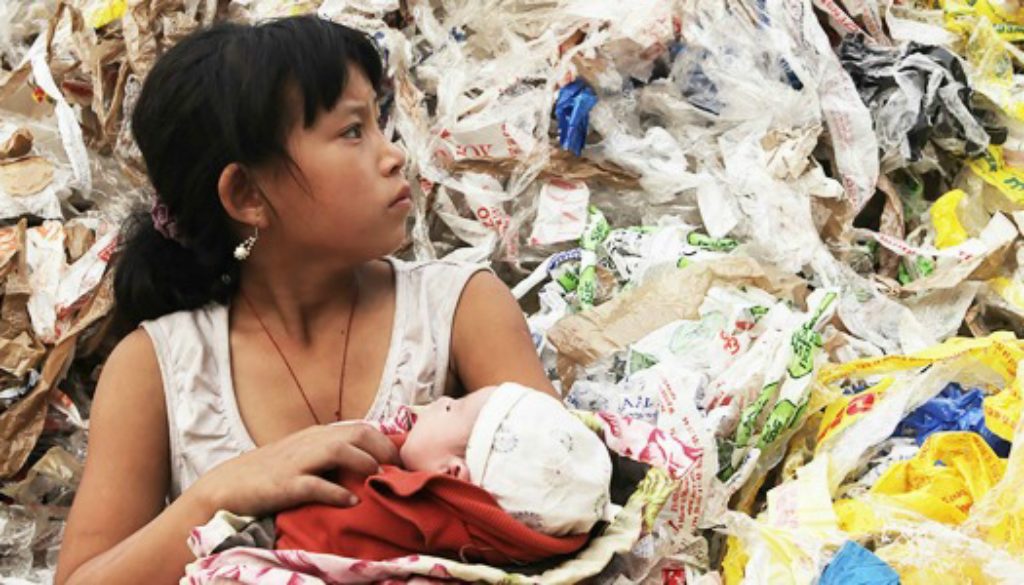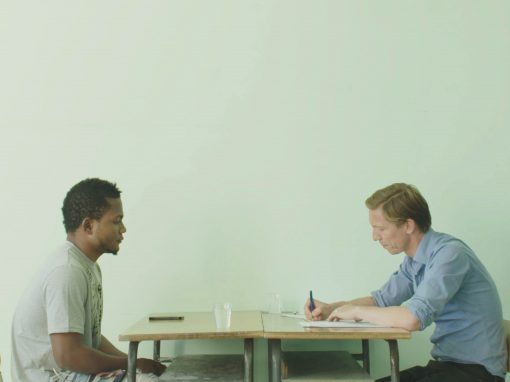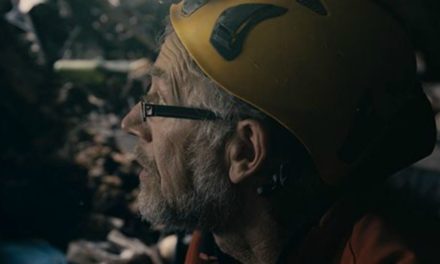We open in a dark, confined space and a young child digging through what becomes apparent as a mount of plastic bags: “Keep on digging” he says, “Use these plastics for covering, we’ll be warm”.
We soon realise that this dream-like playground is the reality of China’s role as the largest importer of plastic waste from first world countries such as Japan, Korea, USA and Europe. In this nation containing 1.371 billion people there are nearly 30 towns engaged in processing waste in highly toxic environments.
The documentary opens in Tsingdao city displaying scenes of China from it’s harbours to it’s vast paddy fields to it’s bustling village markets. We are then lead to a colourful landscape of packaging from familiar labels such as Flora Active Margarine, McDonalds, DHL, . “I don’t have other skills, only dirty works like this so I can support my family, make more money give them better lives”.
Chinese director, Jiu-Liang Wang, introduces us to Kun, a materialistic, 20-something-year-old who runs the plastic factory with his wife. We also meet Peng, an underpaid employee at the factory who works there with his wife, son and daughter, Yi Jie — An 11 year old girl who dreams of attending school, but is denied education due to the costs of working and living.
Despite Wang’s Plastic China raising important questions surrounding this industry in China, it falls short from answering these questions. We are shown children growing up amongst piles of plastic rubbish, catching fish from black coloured polluted water and eating them for dinner.
A woman going into labour and giving birth to her newborn next to stacks of waste. Kun states he could feel tumours in his backside most likely resulted from exposure to toxic-chemicals and is too afraid to have them checked. The health conditions of those working in the waste industry are obviously at stake, but this is merely hinted at in the documentary.
It becomes even more ironic when during a visit Kun’s family takes to Tiananmen Square, they are seen to celebrate in front of a portrait of Mao Zedong, reading out a large slogan promising the Chinese population “All people will have a well-off life. A life that we could earn enough and live comfortably”.
To be very honest, at times the up-close and personal documentation of the lives of two Chinese families felt trivialised by Wang, the filmography featuring the “aesthetics” of the landscape felt like it belonged to an art installation more than a documentary.
Despite lacking substance, Plastic Waste does not fail to expose to us to the harsh realities of environmental degradation perpetuated by the waste we produce in everyday life.
Catch this at the Doc Edge Festival 2017 in Wellington on Monday 15th and Sunday 21st of May, and in Auckland on Friday 26th and Saturday 27th of May





